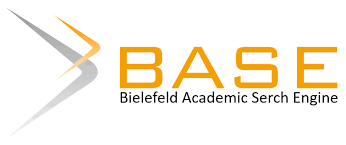SUSTAINABILITY IN BARISTA SKILLS; MONITORING AND EVALUATION FROM BARISTA’S KNOWLEDGE IN SPECIALTY COFFEE AT THE COFFEE LAB DUBAI 2021
(1) International Open University, The Gambia
(*) Corresponding Author
Sari
Teks Lengkap:
PDFReferensi
Agus Jalpi, Achmad Rizal, Fahrurazi. 2020. “Pemberdayaan Kader Posyandu Terhadap Kejadian Stunting di Wilayah Kerja Kelurahan Sungai Miai Kota Banjarmasin.” Jurnal Pengabdian Al-Ikhlas, Vol. 6 205-219. doi:10.31602/jpaiuniska.v6i2.
André Eiermann, Samo Smrke, Loïc-Marco Guélat, Marco Wellinger, Anja Rahn, Chahan Yeretzian. 2020. “Extraction of Single Serve Coffee Capsules: Linking Properties of Ground Coffee to Extraction Dynamics and Cup Quality.” Scientific Reports 10. doi:10.1038/s41598-020-74138-1.
Ayöz, Sila. 2018. Coffee is the New Wine: An Ethnographic Study of Third Wave Coffee in Ankara. Thesis, Ankara: The Graduate School of Social Sciences of Middle East Technical University.
Benoit Daviron, Stefano Ponte. 2005. The Coffee Paradox: Global Markets, Commodity Trade, and the Elusive Promise of Development. New York: Zed Books.
Budi Rahardjo, Rokhani Hasbullah, Fahim M. Taqi. 2019. “Coffee Shop Business Model Analysis.” (Integrated Journal of Business and Economics, Vol. 3 140-152. doi: 10.33019/ijbe.v3i2.153.
C. Orozco-Castillo, K. J. Chalmers, R. Waugh, W. Powell. 1994. “Detection of Genetic Diversity and Selective Gene Introgression in Coffee Using RAPD Markers.” Theoretical and Applied Genetics volume 934-940. doi:10.1007/BF00225787.
Chadios, Konstantinos. 2005. The Urban Coffee Shop. Thesis, Massachusetts: Massachusetts Institute of Technology, Dept. of Architecture. http://hdl.handle.net/1721.1/33031.
Charles Spence, Fabiana M. Carvalho. 2020. “The Coffee Drinking Experience: Product Extrinsic (atmospheric) Influences on Taste
Jurnal Pengabdian Al-Ikhlas ISSN : 2461-0992
Volume 7 Nomor 3, April 2022
and Choice.” Food Quality and Preference, Vol. 80 1-29. doi:10.1016/j.foodqual.2019.103802.
Clare Cooper Marcus, Carolyn Francis. 1998. People Places: Design Guidelines for Urban Open Space. Toronto: John Wiley and Sons.
Conghu Liu, Wei Cai, Ognyan Dinolov, Cuixia Zhang, Weizhen Rao, Shun Jia, Li Li, Felix T.S.Chang. 2018. “Emergy Based Sustainability Evaluation of Remanufacturing Machining Systems.” Energy, Vol. 150 670-680. doi:10.1016/j.energy.2018.02.113.
Daniele Giovannuccia, Stefano Ponte. 2005. “Standards as a New Form of Social Contract? Sustainability Initiatives in the Coffee Industry.” Food Policy 284-301. doi:10.1016/j.foodpol.2005.05.007.
Edward E. Lawler III, Christopher G. Worley, David Creelman. 2011. Management Reset: Organizing for Sustainable Effectiveness. San Francisco: Jossey-Bass.
Ellis, Markman. 2008. “An introduction to the coffee-house: A discursive model.” Language and Communication, 28 156-164. doi:10.1016/j.langcom.2008.01.004.
Érica Mendes dos Santos, Lucas Malvezzi de Macedo, Louise Lacalendola Tundisi, Janaína Artem Ataide, Gisele Anne Camargoc, Rita C. Alvesd, Maria Beatriz P. P. Oliveira, Priscila Gava Mazzolaa. 2021. “Coffee by-products in topical formulations: A review.” Trends in Food Science & Technology, Vol 111 280-291. doi:10.1016/j.tifs.2021.02.064.
Fajar Eko Putrato, Herry Hudrasyah. 2017. “Identification of Consumer Decision Journey in Choosing Third Wave Coffee Shop in Bandung by Youth Market Segment.” Journal of Business and Managament, Vol. 6 88-100.
Felton, Emma. 2019. Filtered: Coffee, the Café and the 21st-Century City. New York: Routledge.
Fischer, Edward F. 2017. Quality and Inequality: Taste, Value, and Power in the Third Wave Coffee Market. Working Paper, Cologne: Max Planck Institute for the Study of Societies. http://hdl.handle.net/10419/156227.
Frodeman, Robert. 2014. Sustainable Knowledge: A Theory of Interdisciplinarity. New York: Palgrave Macmillan. doi:10.1057/9781137303028.
Harris, Cathryn. 2007. “Libraries with Lattes: The New Third Place.” Australasian Public Libraries and Information Services, Vol. 20 145-152. doi:10.3316/ielapa.903493550086364.
Heather Chappells, Elizabeth Shove. 2005. “Debating the Future of Comfort: Environmental Sustainability, Energy Consumption and the Indoor Environment.” Building Research and Information, Vol. 33 32-40. doi:10.1080/0961321042000322762.
Inma Borrella, Carlos Mataix, Ruth Carrasco‐Gallego. 2015. “Smallholder Farmers in the Speciality Coffee Industry: Opportunities, Constraints and the Businesses that are Making it
Jurnal Pengabdian Al-Ikhlas ISSN : 2461-0992
Volume 7 Nomor 3, April 2022
Possible.” IDS Bulletin, 46 29-44. doi:10.1111/1759-5436.12142.
Iris Vermeir, Wim Verbeke. 2006. “Sustainable Food Consumption: Exploring the Consumer “Attitude – Behavioral Intention” Gap.” Journal of Agricultural and Environmental Ethics 169-194. doi:10.1007/s10806-005-5485-3.
Jennifer Ferreira, Carlos Ferreira, Elizabeth Bos. 2021. “Spaces of Consumption, Connection, and Community: Exploring the Role of the Coffee Shop in Urban Lives.” Geoforum 21-29. doi:10.1016/j.geoforum.2020.12.024.
Jime´nez-Aleixandre, Maria-Pilar. 2010. “Knowledge Producers or Knowledge Consumers? Argumentation and Decision Making About Environmental Management.” International Journal of Science Education, Vol. 24 1171-1191. doi:10.1080/09500690210134857.
Kristina Bäckström, Ulf Johansson. 2006. “Creating and Consuming Experiences in Retail Store Environments: Comparing Retailer and Consumer Perspectives.” Journal of Retailing and Consumer Services 417-430. doi:10.1016/j.jretconser.2006.02.005.
Kühn, Mia Bothma Stefanie. 2018. “The Coffee Shop Dining Experience and Customer Loyalty Intentions: Brewing the Perfect Blend.” Journal of the Southern African Institute for Management Scientists, Vol. 27. https://hdl.handle.net/10520/EJC-139fb0ca94.
Lannigan, James. 2020. “Making a Space for Taste: Context and Discourse in the Specialty Coffee Scene.” International Journal of Information Management, Vol 51 1-8. doi:10.1016/j.ijinfomgt.2019.07.013.
Luis A. Perez-Batres, Van V. Miller, Michael J. Pisani, Irene Henriques, Jose A. Renau-Sepulveda. 2012. “Why Do Firms Engage in National Sustainability Programs and Transparent Sustainability Reporting?” Management International Review, Vol. 52 107-136. doi:10.1007/s11575-011-0098-8.
Mangku Purnomo, Pardamean Daulay,Medea Ramadhani Utomo, Sugeng Riyanto. 2019. “Moderating Role of Connoisseur Consumers on Sustainable Consumption and Dynamics Capabilities of Indonesian Single Origin Coffee Shops.” Sustainability, Vol. 11. doi:10.3390/su11051319.
Manning, Paul. 2008. “Barista Rants About Stupid Customers at Starbucks: What Imaginary Conversations Can Teach Us About Real Ones.” Language and Communication, Vol. 28 101-126. doi:10.1016/j.langcom.2008.02.004.
Maspul, Kurniawan Arif. 2020. “A Brief Overview Between Coffee and Covid-19 Pandemic.” doi:10.13140/RG.2.2.20798.10568.
Maspul, Kurniawan Arif. 2020. “Antara Kolonialisme dan Keberlangsungan Kopi di Indonesia.” doi:10.13140/RG.2.2.25831.27044.
Jurnal Pengabdian Al-Ikhlas ISSN : 2461-0992
Volume 7 Nomor 3, April 2022
Mathilde Charles, Andrea Romano, Sine Yener, Massimo Barnabà, Luciano Navarini, Tilmann D. Märk, Franco Biasolia, Flavia Gasperi. 2015. “Understanding Flavour Perception of Espresso Coffee by the Combination of a Dynamic Sensory Method and in-Vivo Nosespace Analysis.” Food Research International, Vol. 69 9-20. doi:10.1016/j.foodres.2014.11.036.
McGowan, Bruce. 1981. Economic Life in Ottoman Empire. Cambridge: Cambridge University Press.
Mensah, Justice. 2019. “Sustainable Development: Meaning, History, Principles, Pillars, and Implications for Human Action: Literature Review.” Cogent Social Science, Vol. 5 1-21. doi:10.1080/23311886.2019.1653531.
Mohammed Ismail El-Adly, Riyad Eid. 2015. “Measuring the perceived value of malls in a non-Western context: the case of the UAE.” International Journal of Retail & Distribution Management, Vol. 43 849-869. doi:10.1108/IJRDM-04-2014-0045.
Natalia Li, Yoshiharu Sakamoto. 2020. “Trends in Specialty Coffee.” Food Engineering Series 407-443. doi:10.1007/978-3-030-54437-9_9.
Natnicha Bhumiratana, Koushik Adhikari, Edgar Chambers. 2014. “The Development of an Emotion Lexicon for the Coffee Drinking Experience.” Food Research International 83-92. doi:10.1016/j.foodres.2014.03.008 .
Plessis, Erik Mygind du. 2018. “Serving Coffee with Zizek On Decaf, Half-caf and Real Resistance at Starbucks.” Theory and Politics in Organisation 551-576. http://www.ephemerajournal.org/sites/default/files/pdfs/contribution/18-3duplessis.pdf.
Pozos-Brewer, Rose. 2015. “Coffee Shops: Exploring Urban Sociability and Social Class in the Intersection of Public and Private Space.” Thesis.
Renee Wever, Jesper van Kuijk, Cesper Boks. 2008. “User‐Centred Design for Sustainable Behaviour.” International Journal of Sustainable Engineering 9-20. doi:10.1080/19397030802166205.
Robert Fitter, Raphael Kaplinksy. 2009. “Who Gains from Product Rents as the Coffee Market Becomes More Differentiated? A Value‐chain Analysis.” IDS Bulletin 69-82. doi:10.1111/j.1759-5436.2001.mp32003008.x.
Roland Urwin, Hema Kesa, Erica Sao Joao. 2019. “The Rise of Specialty Coffee: An Investigation Into the Consumers of Specialty Coffee in Gauteng.” African Journal of Hospitality, Tourism and Leisure, Vol. 8 1-17.
Ronan Torres Quintão, Eliane Pereira Zamith Brito, Russell W. Belk. 2015. “The Taste Transformation Ritual in the Specialty Coffee Marke.” Revista de Administração de Empresas 483-494.
Sabrina Rashid, Kamal Ghose. 2015. “Organisational Culture and the Creation of Brand Identity: Retail Food Branding in New Markets.” Marketing Intelligence & Planning, Vol. 33 2-19. doi:10.1108/MIP-10-2013-003.
Jurnal Pengabdian Al-Ikhlas ISSN : 2461-0992
Volume 7 Nomor 3, April 2022
Shamsher Singh, Deepali Saluja. 2013. “Customer Satisfaction Study of Barista Coffee.” European Journal of Commerce and Management Research (EJCMR), Vol. 2 118-122.
Simon, Bryant. 2009. Everything But the Coffee: Learning about America from Starbucks. Berkeley: University of California Press.
Specialty Coffee Association. 2021. Become an Authorized SCA Trainer. Accessed March 20, 2021. https://sca.coffee/education/trainers.
—. 2021. Coffee Skills Program. Accessed March 20, 2021. https://sca.coffee/education/programs/coffee-skills-program.
Teketay, Demel. 1998. “History, Botany, Ecological Requirements of Coffee.” 28-50. doi:10.10520/AJA00837059_213.
Teuber, Ramona. 2010. “Geographical Indications of Origin as a Tool of Product Differentiation: The Case of Coffee.” Journal of International Food & Agribusiness Marketing, Vol. 22 277-298. doi:10.1080/08974431003641612.
West, Paige. 2010. “Making the Market: Specialty Coffee, Generational Pitches, and Papua New Guinea.” Antipode, Vo. 42 690-718. doi:10.1111/j.1467-8330.2010.00769.x.
Winfred Ikiring Onyas, Morven G. McEachern, Annmarie Ryan. 2018. “Co-constructing sustainability: Agencing sustainable coffee farmers in Uganda.” Journal of Rural Studies, Vol. 61 12-21. doi:10.1016/j.jrurstud.2018.05.006.
World Health Organization. 2017. Building resilience: a key pillar of Health 2020 and the Sustainable Development Goals – Examples from the WHO Small Countries Initiative (2017). Copenhagen: WHO Regional of Europe.
Yi, Youjae. 1990. “A Critical Review of Consumer Satisfaction.” Review of Marketing 68-123.
Zukin, Sharon. 1990. “Socio-Spatial Prototypes of a New Organization of Consumption: The Role of Real Cultural Capital.” Sociology 37-56. doi:10.1177/0038038590024001005.
DOI: http://dx.doi.org/10.31602/jpaiuniska.v7i3.6870
Refbacks
- Saat ini tidak ada refbacks.
Jurnal Pengabdian Al-Ikhlas Universitas Islam Kalimantan Muhammad Arsyad Al Banjary, ISSN : 2461-0992
------------------------------------------------------------------------------------------------
This work is licensed under a Creative Commons Attribution 4.0 International License.






